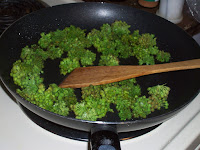Buy local.
We all know we should do it, and there are some pretty obvious ways we know how. Choose the local strawberries, shop at your farmer's market, buy soaps and Christmas gifts from local small businesses.
Even though in principle I know I ought to buy local, there are some areas of my consumption where I had never connected the dots. Possibly because it had never occurred to me that there was a local alternative to the brand names with which I was familiar.
I'm talking about spirits and cocktails.
My first priority in moving into my very own apartment was to have a fully stocked bar. Yes, nothing screams privilege like having your own bar and I was a good little consumer for wanting one. Luckily my mother made me the first offering toward my home bar; a bottle of gin distilled only an hour's drive away. This opened my eyes to the fact that I previously had thought nothing of buying gin imported from England, despite always choosing wine based on geographical proximity (anything but Merlot and Chardonnay, obviously).
To my delight there are several other flavourful Canadian gins(one is certified organic)! It doesn't end there, in the winter I am fond of Baileys in my coffee. Would you believe there were two Canadian cream liquors available in my local boozery? Not only that but I found Canadian coffee liquors, vodka, and whisky. Everything I wanted for my bar had a local equivalent. Though the brand name was different, the flavour and price were basically identical.
Eden's Rise is about making our world more habitable, for ourselves and those who share this earth with us. What better way to be an activist than by choosing to consume products that have travelled a shorter distance?
Cheers to you!


 The immature seedpods (1 1/2 inches long, inside should be all white- the seeds should not be turning brown yet!) can be harvested and blanched. Then, try them in soups, stews, or stir-fries.
The immature seedpods (1 1/2 inches long, inside should be all white- the seeds should not be turning brown yet!) can be harvested and blanched. Then, try them in soups, stews, or stir-fries. 

